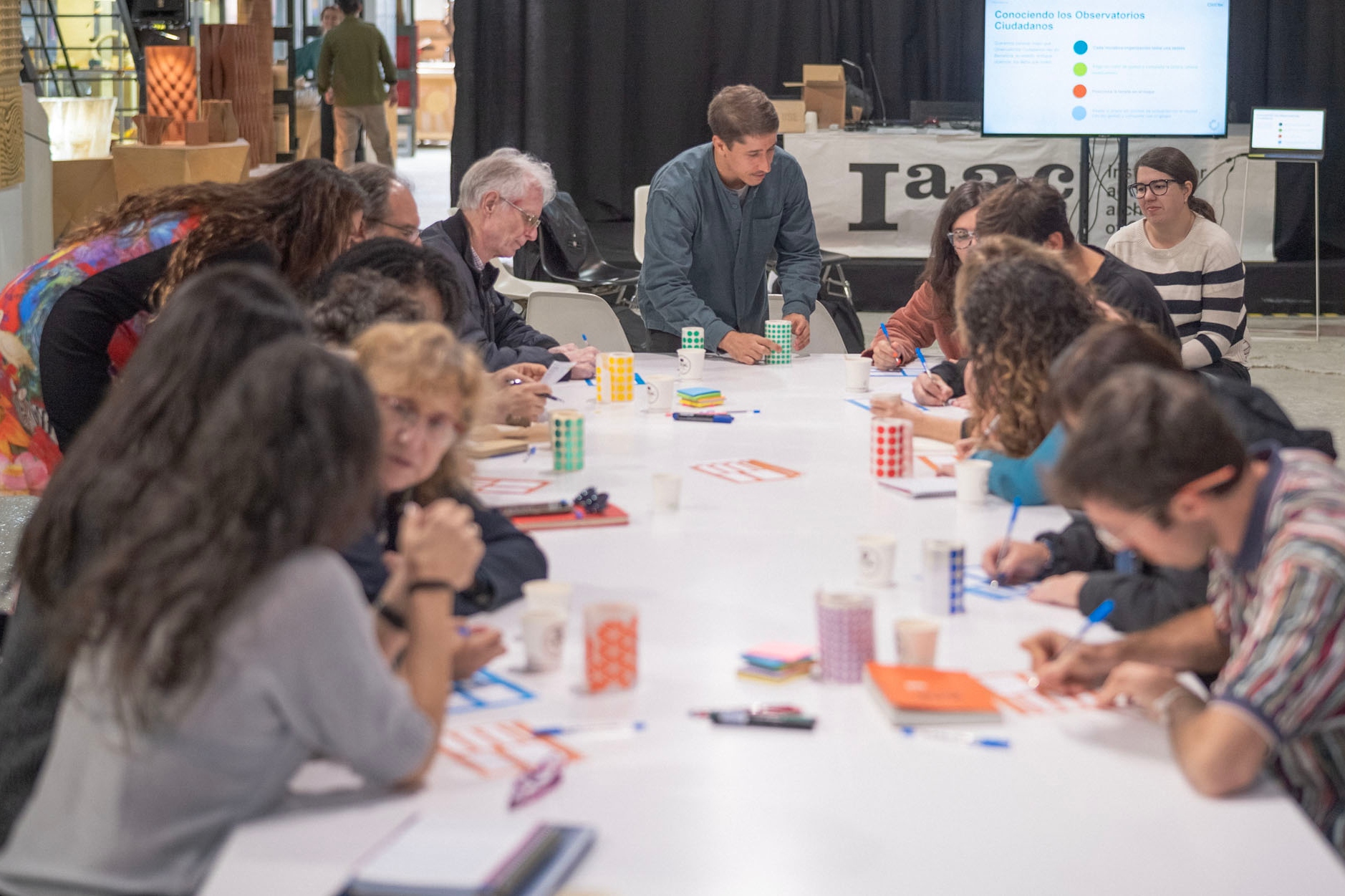Consortium partner Joao Paulo Tavares highlights the significance of CitiObs' Mutual Learning Workshops

Photo of Barcelona’s Mutual Learning Workshop. Stakeholders working in an activity based on the Pains and Gains Structure.
CitiObs is a unique project in the field of Citizen Science for many reasons: it is methodologically refined, technically innovative, socially inclusive, and strategically ambitious. With a committed team, our goal is to enhance and expand Citizen Observatories (COs) in 3 phases, engaging with 5 Frontrunner cities, 30 Implementer cities, and 50 Fellow cities. We strive to support COs by understanding their unique challenges and adapting our solutions to diverse urban contexts.
Our approach centres around a key value: co-creation. So far, we have engaged with stakeholders in five cities, identifying unique insights and trends to inform the development of tailor-made toolkits. This process ensures our solutions are grounded in real-world experiences and diverse perspectives.
Mutual Learning Workshops - A Convergence of Ideas
When you think about a meeting between city officials, researchers, local activists, and representatives of different organizations, you might automatically picture rehearsed speeches, lengthy presentations, and endless slides. You would be surprised when you first step into one of our workshops. After being greeted by the organizers and interacting with other participants and colleagues, you would find yourself in an engaging and participative environment designed to give voice to your experience and articulate it with other issues raised by other participants. These workshops are dynamic platforms for collaborative learning, bringing together CitiObs partners and leading COs. We aim to deepen our understanding of COs through shared experiences and co-develop practical tools that resonate with stakeholders across various sectors.
We have already conducted Mutual Learning Workshops in Barcelona, Dublin, Kristiansand, and Rotterdam. You will be hearing more about each of these experiences in upcoming blog posts shared on our website. So far, the overall results are promising and illustrate the importance of bringing together all the stakeholders involved with COs.
The success of our workshops highlights the importance of diverse collaboration. By involving stakeholders from public and private sectors, academia, and civil society, we ensure that emerging solutions are innovative and resonate with a broad range of urban needs. This inclusive approach is more than a methodology; it is a commitment to ensuring that every voice is heard and valued. Such diversity is essential in crafting policies that are both effective and equitable. It facilitates a deeper understanding of the challenges and fosters more engaged citizen participation. By integrating these diverse insights, CitiObs can develop strategies that are not only technically sound but also culturally sensitive and socially inclusive, thereby enhancing the overall impact and sustainability of COs.
Paving the Way for a Scalable Future in Citizen Science
As we move forward, COs in our five Frontrunner cities will gain access to the extensive resources developed by CitiObs. This includes mentoring and tools to improve urban environmental monitoring and data management. The social dimension is also vital to this project, so participating COs can expect to engage with toolkits focused on citizen engagement. You can read more about our approach to Leaving-No-One-Behind here and find out how CitiObs plans to “set the foundations for empowerment, inclusiveness and equity in the activities of the COs”.
This is just the beginning of our journey to engage with COs across Europe, aiming to scale our impact under the principles of inclusivity, participation, innovation, and policy influence. Our frontrunner COs in Athens, Barcelona, Dublin, Kristiansand, and Rotterdam are setting the stage for a broader application of Citizen Science and Observatories. Get involved by attending our next Mutual Learning Workshop or follow us to see how collective insights are shaping more inclusive urban spaces!


